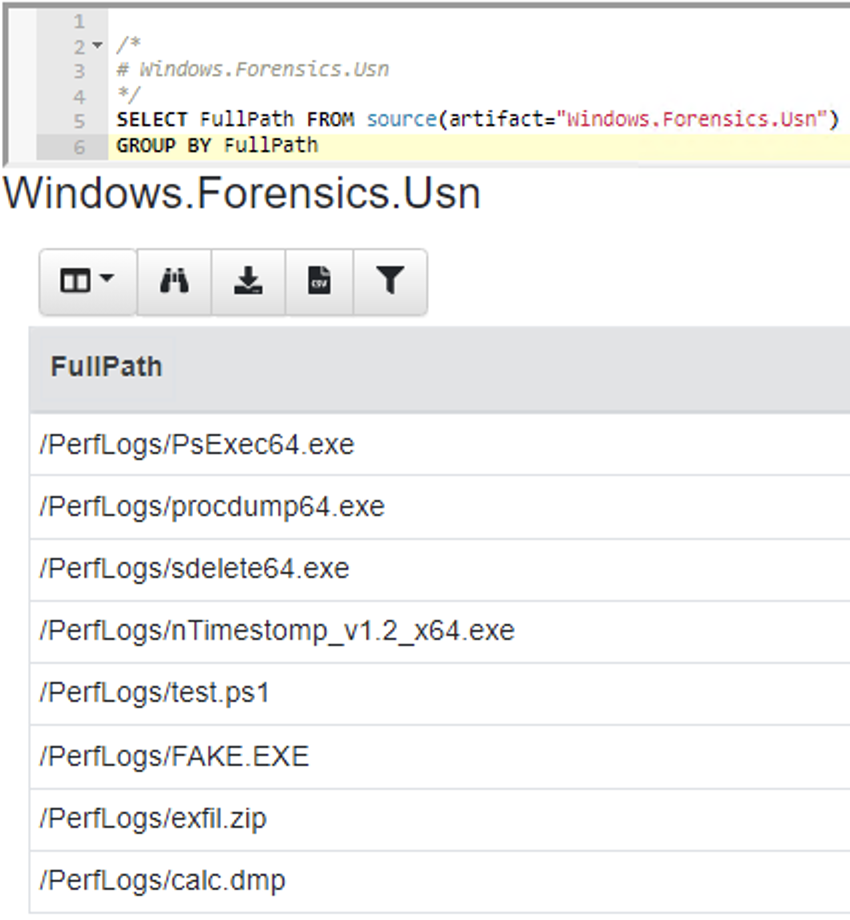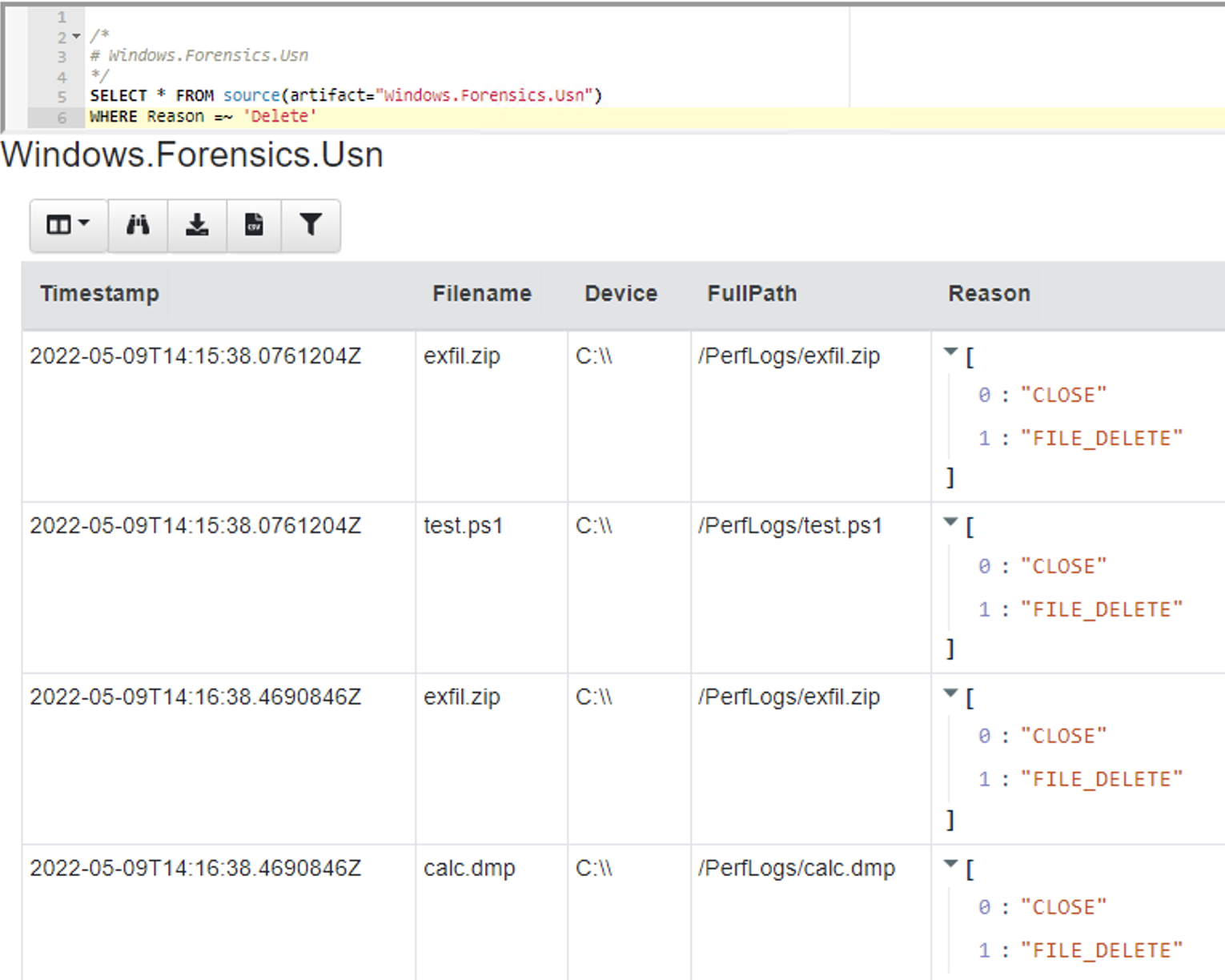<!-- .slide: class="content" --> ## NTFS Overview * NTFS is the file system in all modern Windows operating systems. * Feature packed with a design focused on storage optimization and resilience. * NTFS implements Journalling to record metadata changes to track state and integrity of the file system. * Allows for recovery after system crashes to avoid data loss * File System objects referenced in a Master File Table (MFT) --- <!-- .slide: class="content" --> ## New Technology File System * In NTFS, the Master File Table (MFT) is at the heart of the file system. A structured database that stores metadata entries for every file and folder. * Every object gets an entry within the MFT. Each entry is usually 1024 bytes long. Contains a series of attributes that fully describe the object. --- <!-- .slide: class="content" --> ## MFT entries contain attributes <div class="container small-font"> <div class="col"> ## File entry examples * $STANDARD_INFORMATION * $FILE_NAME (Windows long name) * $FILE_NAME (short name) * $DATA * $DATA (alternate data stream sometimes) </div> <div class="col"> ## Folder entry examples * $STANDARD_INFORMATION * $FILE_NAME (Windows long name) * $FILE_NAME (short name) * $INDEX_ROOT * $INDEX_ALLOCATION (sometimes) </div> --- <!-- .slide: class="content small-font" --> ## NTFS Analysis Velociraptor offers a number of plugins to access detailed information about NTFS: * `parse_mft()`: parses each MFT entry and returns high level metadata about the entry - including reconstruct the full path of the entry by traversing parent MFT entries. * `parse_ntfs()`: Given an MFT ID this function will display information about the various streams (e.g. `$DATA`, `$Filename` etc) * `parse_ntfs_i30()`: This scans the `$i30` stream in directories to recover potentially deleted entries. --- <!-- .slide: class="content small-font" --> ## Finding suspicious files Parse the MFT using `Windows.NTFS.MFT` * Common DFIR use case is finding files * File name * Path * File type * Content * Velociraptor plugins * glob * parse_mft * yara * other content based plugins <img src="../../modules/ntfs_forensics/MFT_artifact.png" style="bottom: 0px" class="inset" /> --- <!-- .slide: class="content" --> ## Windows.Forensics. FilenameSearch * Apply yara on the MFT * fast yara * simple string based * filename / top level folder only * comma separated * Crude and less control * Verbose results <img src="../../modules/ntfs_forensics/Windows.Forensics.FilenameSearch.png" style="bottom: 0px" class="inset" /> --- <!-- .slide: class="content" --> ## Windows.NTFS.MFT <div class="container small-font"> <div class="col"> * Parses MFT * Easy to use * Filters * Path * File name * Drive * Time bounds * Size * Performance optimised </div> <div class="col"> <img src="../../modules/ntfs_forensics/Windows.NTFS.MFT.png" style="bottom: inherit" class="inset" /> </div> </div> --- <!-- .slide: class="content" --> ## Exercise - Generate test data To automatically prep your machine run this script: ```powershell ### NTFS exercise setup ## 1. download some files to test various content and add ADS to simulate manual download from a browser $downloads = ( "https://live.sysinternals.com/PsExec64.exe", "https://live.sysinternals.com/procdump64.exe", "https://live.sysinternals.com/sdelete64.exe" ) foreach ( $url in $downloads){ "Downloading " + $Url $file = Split-Path $Url -Leaf $dest = "C:\PerfLogs\" +$file $ads = "[ZoneTransfer]`r`nZoneId=3`r`nReferrerUrl=https://18.220.58.123/yolo/`r`nHostUrl=https://18.220.58.123/yolo/" + $file + "`r`n" Remove-Item -Path $dest -force -ErrorAction SilentlyContinue Invoke-WebRequest -Uri $Url -OutFile $dest -UseBasicParsing Set-Content -Path $dest":Zone.Identifier" $ads } ``` --- <!-- .slide: class="content" --> ## More setup ```powershell ## 2.Create a PS1 file in staging folder (any text will do but this is powershell extension) echo "Write-Host ‘this is totally a resident file’" > C:\Perflogs\test.ps1 ## 3.Modify shortname on a file fsutil file setshortname C:\PerfLogs\psexec64.exe fake.exe ## 4. Create a process dumpOpen calculator (calc.exe) calc.exe ; start-sleep 2 C:\PerfLogs\procdump64.exe -accepteula -ma win32calc C:\PerfLogs\calc.dmp get-process | where-object { $_.Name -like "*win32calc*" } | Stop-Process ## 5. Create a zip file in staging folder Compress-Archive -Path C:\PerfLogs\* -DestinationPath C:\PerfLogs\exfil.zip -CompressionLevel Fastest ## 6. Delete dmp,zip and ps1 files - deleted file discovery is important for later! Remove-Item -Path C:\PerfLogs\*.zip, C:\PerfLogs\*.dmp, C:\PerfLogs\*.ps1 ``` Note: * Download and copy to staging folder C:\PerfLogs\ * https://live.sysinternals.com/procdump64.exe * https://live.sysinternals.com/sdelete64.exe * https://live.sysinternals.com/psexec64.exe * Add ADS to simulate Mark of the Web Create a PS1 file in staging folder (any text will do but this is powershell extension) ``` echo "Write-Host ‘this is totally a resident file’" > C:\Perflogs\test.ps1 ``` Modify short name on a file ``` fsutil file setshortname C:\PerfLogs\psexec64.exe fake.exe ``` Create a process dump Open calculator (`calc.exe`) ``` C:\PerfLogs\procdump64.exe -accepteula -ma calc C:\PerfLogs\calc.dmp ``` Create a zip file in staging folder - open `C:\Perflogs in Explorer` highlight and select: Send to > Compressed (zipped) folder. Delete `dmp.zip` and `ps1` files - deleted file discovery is important for later! ``` Remove-Item -Path C:\PerfLogs\*.zip, C:\PerfLogs\*.dmp, C:\PerfLogs\*.ps1 ``` --- <!-- .slide: class="content" --> ## Exercise <div class="container small-font"> <div class="col"> * Find contents of `C:\Perflogs` * Review metadata of objects * Explore leveraging filters * to target specific files or file types * to find files limited to a time frame * Can you find the deleted files? * You may get lucky and have an unallocated file show. * Try `Windows.Forensics.Usn` with filters looking for suspicious extensions in our staging location! </div> <div class="col"> <img src="../../modules/ntfs_forensics/MFT_exercise1.png" style="bottom: inherit" class="inset" /> </div> </div> --- <!-- .slide: class="content small-font" --> ## The USN journal * Update Sequence Number Journal or Change journal is maintained by NTFS to record filesystem changes. * Records metadata about filesystem changes. * Resides in the path $Extend\$UsnJrnl:$J  --- <!-- .slide: class="content" --> ## USN Journal * Records are appended to the file at the end * The file is sparse - periodically NTFS will remove the range at the start of the file to make it sparse * Therefore the file will report a huge size but will actually only take about 30-40mb on disk. * When collecting the journal file, Velociraptor will collect the sparse file. --- <!-- .slide: class="content" --> ## Exercise - Windows.Forensics.Usn <div class="container small-font"> <div class="col"> Target `C:\PerfLogs` with the `PathRegex` field. * typically the USN journal only records filename and MFTId and ParentMFTId record. Velociraptor automatically reconstructs the expected path so the user can filter on path. * This artifact uses FullPath results with “/”. </div> <div class="col"> <img src="../../modules/ntfs_forensics/Windows.Forensics.USN.png" style="bottom: inherit" class="inset" /> </div> </div> --- <!-- .slide: class="full_screen_diagram" --> ## Exercise - UsnJ solution * There are many entries even for a simple file action like download to disk.  --- <!-- .slide: class="content" --> ## Exercise - UsnJ solution <div class="small-font"> * But these are simple to detect when you know what to look for! <div class="container"> <div class="col">  </div> <div class="col">  </div> </div> </div> --- <!-- .slide: class="content" --> ## Advanced NTFS: Alternate Data Stream <div class="container small-font"> <div class="col"> * Most browsers attach an ADS to files downloaded from the internet. * Use the VFS viewer to view the ADS of downloaded files. * Use ADS Hunter to discover more interesting ADS * Use `Windows.Analysis. EvidenceOfDownload` to identify downloaded files and unpacked ZIP files. </div> <div class="col"> <img src="../../modules/ntfs_forensics/ADS_grupby.png" style="bottom: inherit" class="inset" /> </div> </div> Note: The inset shows typical frequency analysis of ADS naturally occurring What is the `Wof` stuff? https://devblogs.microsoft.com/oldnewthing/20190618-00/?p=102597